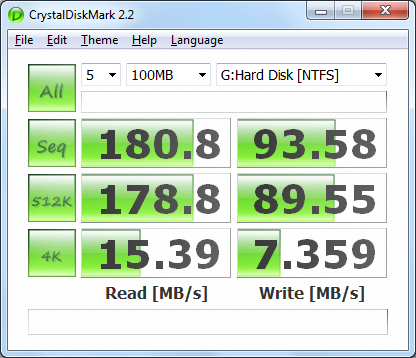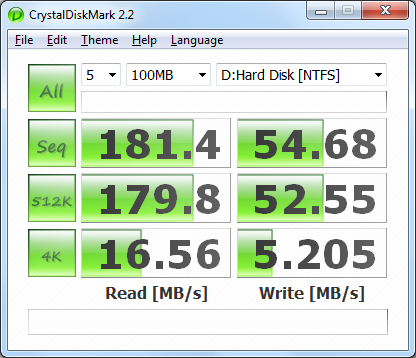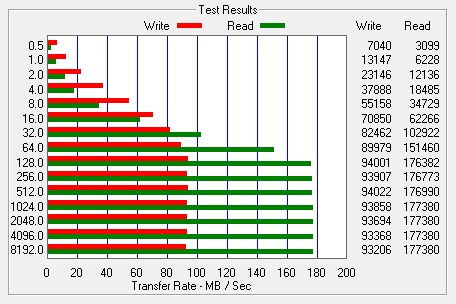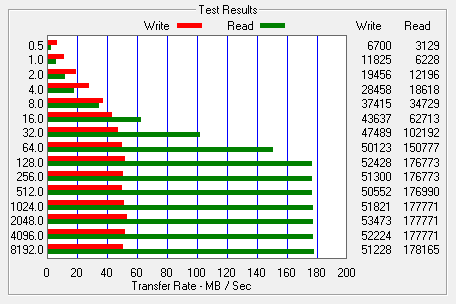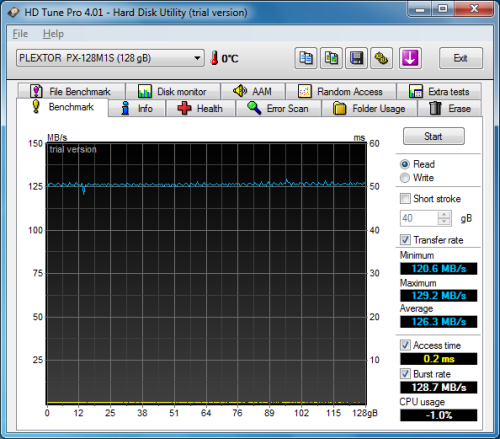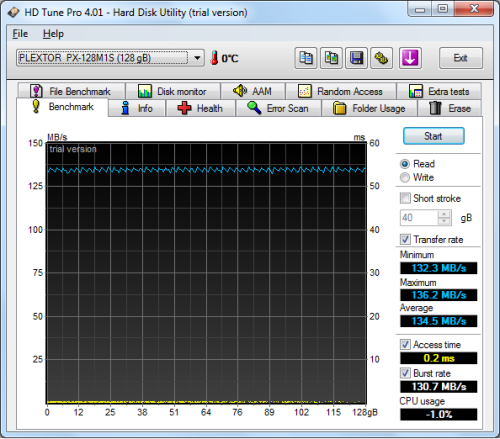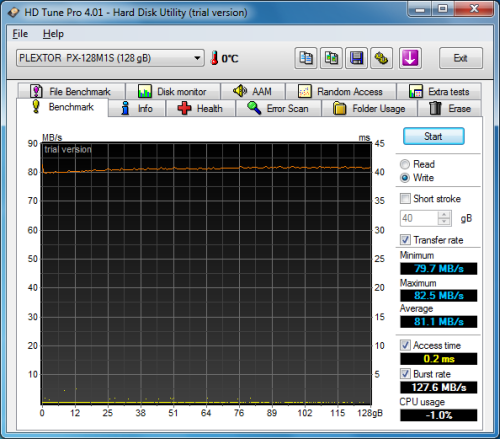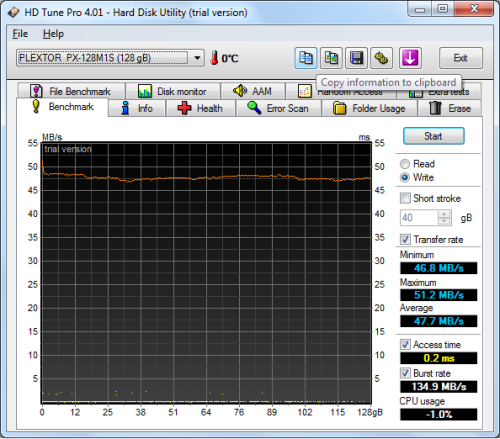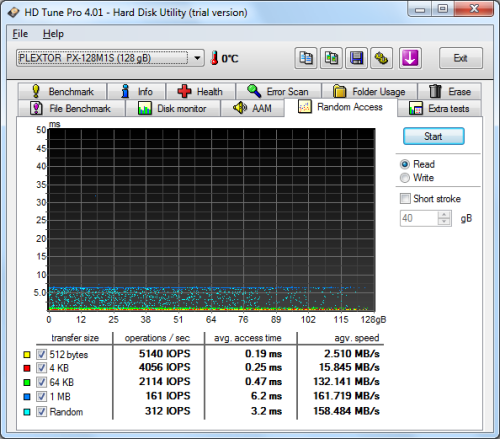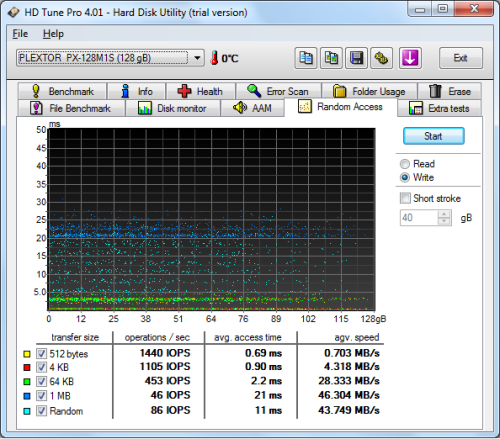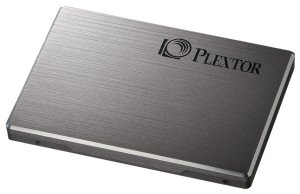

Model: Plextor PX-128M1S 128GB Solid State Drive
Manufacturer: Plextor
Provided By: Plextor LLC
As one of the biggest names in the storage industry, Plextor doesn't need much of an introduction. For more than a decade, they've produced some of the best optical drives the industry has seen. Known the world over for their quality, performance and features, these drives have become favorites among consumers and professionals alike. To keep ahead of the competition, Plextor has continued to lead the way, bringing cutting edge technologies to market. Today, their product lineup includes a number of high performance DVD and Blu-ray Disc writers, many with features found nowhere else.
With Plextor facing increased competition from optical drive manufacturers in Korea and Taiwan, the company has set its sights on the lucrative solid-state drive (SSD) market. This spring, Plextor released its first line of SSDs, the 64GB PX-64M1S and 128GB PX-128M1S. Designed by Philips & Lite-On Digital Solutions (PLDS), these two MLC-based SSDs utilize Marvell's 88SS8014-BHP2 controller chip as well as 64MB of on-board cache. Both drives also feature Plextor's unique wear leveling and garbage collection technologies and come bundled with Acronis True Image software.
For this review, Plextor sent us the PX-128M1S. Slightly faster than the PX-64M1S, this SSD is capable of delivering up to 130MB/s sequential read and 70MB/s sequential write speeds as well as up to 4,300 random read and 1,800 random write IOPS.
| Plextor PX-128M1S 128GB Solid State Drive | ||||||||||||||||||||||||||||||||||||||||||||||
General Specifications
Performance
Reliability
Power Management
Environmental
Dimensions and Weight
|
Needless to say, this is only a taste of what the PX-128M1S has to offer. To give you an idea of what to expect, we'll take a closer look at Plextor's new 128GB SSD and then see how well it performs. Does the PX-128M1S have what it takes? Can it deliver the performance and features that we've come to expect from Plextor? Keep reading as we find out.
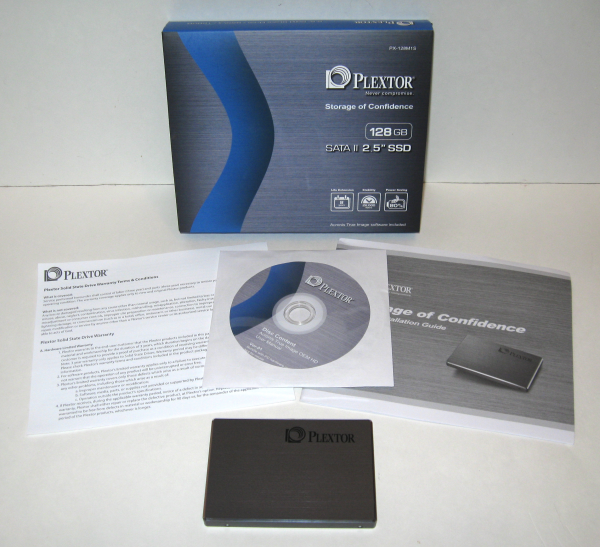
The PX-128M1S comes in a small, blue and silver box. While the aren't a lot of details on the front, the back of the box has a small picture of the SSD as well as some information regarding its features, specifications and box contents. Inside, you'll find the PX-128M1S, a quick installation guide, warranty card and a CD containing Acronis True Image.
Physical Features:
Like Plextor's optical drives, their new SSD is very well constructed. The PX-128M1S's outer casing is made out of cast aluminum. Along with it being strong and durable, the casing is very lightweight. On top of that, its brushed aluminum finish and machined edges look great.
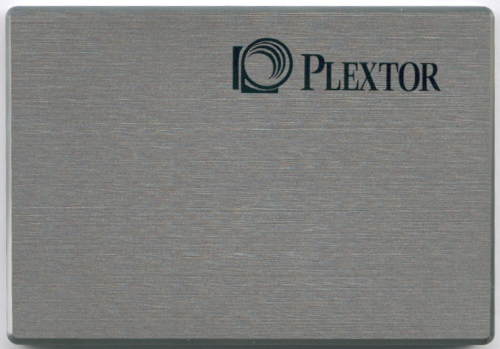
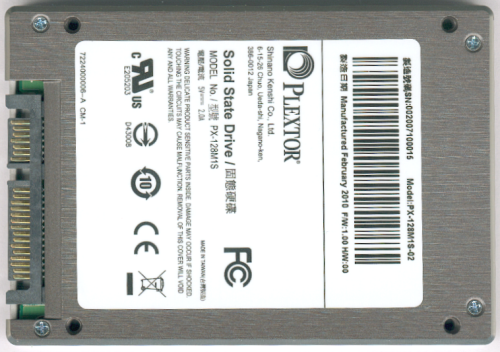
The PX-128M1S is one of the first drives to use Marvell's "Da Vinci" 88SS8014-BHP2 controller chip. Compared to the controllers from companies like SandForce, Indilinx and JMicron, very little is known about the 88SS8014-BHP2. Looking at the pictures below, you can see that both sides of the PCB are covered in memory chips. For the PX-128M1S, Plextor opted to use Samsung's K9HCG08U1M-PCB0 NAND flash chips. The PX-128M1S also has a single 64MB Hynix HY5DU121622DTPB memory chip that is used for caching.


The test system used in this review was an HP dc7900. The computer came equipped with an Intel Core 2 Duo E8400 3.0GHz CPU, 2GB of DDR2 800MHz memory, Seagate Barracuda 7200.10 ST3250310AS 250GB SATA hard drive, NVIDIA Quadro FX570 256MB PCIe graphics card and Intel 82567LM-3 gigabit network card. For the operating system, I installed a fresh copy of Windows 7 Enterprise.
To test the performance of the Plextor PX-128M1S, I ran a series of benchmarks using CrystalDiskMark 2.2, HD Tach RW 3.0.4.0, ATTO Disk Benchmark 2.02, HD Tune Pro 4.01 and Iometer.
CrystalDiskMark 2.2:
First, I ran a few quick tests using CrystalDiskMark. This benchmark tool measures the performance of a storage device by testing its sequential read and write speeds as well as its random read and write speeds using blocks 512K and 4K in size.
Out of the box, the PX-128M1S performed very well. The drive exceeded its rated speeds when both reading and writing. After a day or two of usage though, the SSD's write speeds dropped off considerably.
HD Tach RW 3.0.4.0:
Next, I used HD Tach to test the PX-128M1S's read, write and burst speeds as well as its seek times and CPU usage.
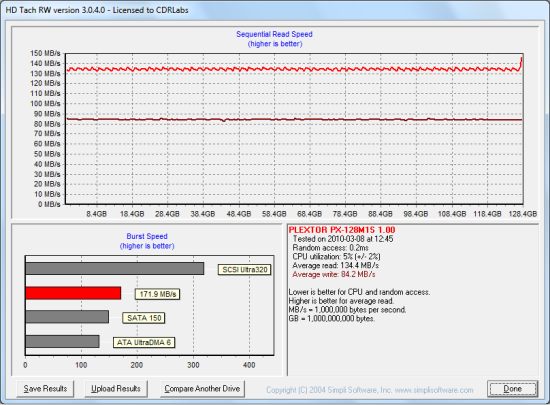
Plextor PX-128M1S - Clean

Plextor PX-128M1S - Dirty
Looking at the screenshots above, you can see that the PX-128M1S performed very well in its "clean" state. Unfortunately, after continued use, the SSD's average write speed dropped from 84 MB/s down to less than 50 MB/s.
ATTO Disk Benchmark 2.43:
I also used ATTO Disk Benchmark to test the PX-128M1S's sequential read and write speeds. The tests are run using blocks ranging in size from 0.5KB to 8192KB and the total length set to 256MB.
With the PX-128M1S in its "clean" state, the read and write speeds topped out at about 177 MB/s and 94 MB/s, respectively. The SSD was able to maintain these read speeds after continued use. However, its write speeds peaked at only 52 MB/s.
HD Tune Pro 4.01:
Next, I ran a series of tests using HD Tune Pro. This hard disk utility measures a drive's performance by testing its sequential read and write speeds as well as its access time, burst rate and CPU usage. For this review, I'm also going to use it to benchmark the PX-128M1S's random read and write speeds, random access times and the number of operations per second.
In its "clean" state, the PX-128M1S had average read and write speeds of 126.1 MB/s and 81.1 MB/s, respectively. Once again, the drive was able to maintain these read speeds after continued use. However, its average writing speed dropped down to only 47.7 MB/s.
Looking at the screenshots above, you can see that the state of the PX-128M1S had very little effect on its random read performance. In fact, the drive actually performed a little better when in a "dirty" state. When it came to writing though, you can see that PX-128M1S's average access times and speeds were not nearly as good. As a result, the number of IOPS was considerably lower.
Iometer:
Lastly, I ran a series of tests using Iometer. This tool can be configured to benchmark a number of things. In this case, I used it to measure the PX-128M1S's read and write speeds and the number of operations per second. These tests were run using blocks ranging from 512B to 2MB in size.
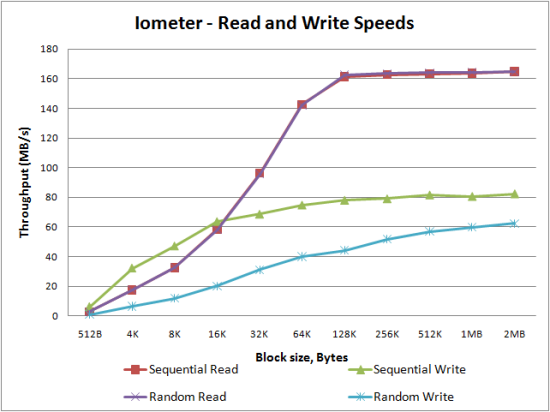
The PX-128M1S's performance was very similar to what we saw in our other tests. With a 2MB block, the drive reached sequential read and write speeds of 164.72 MB/s and 82.47 MB/s, respectively.
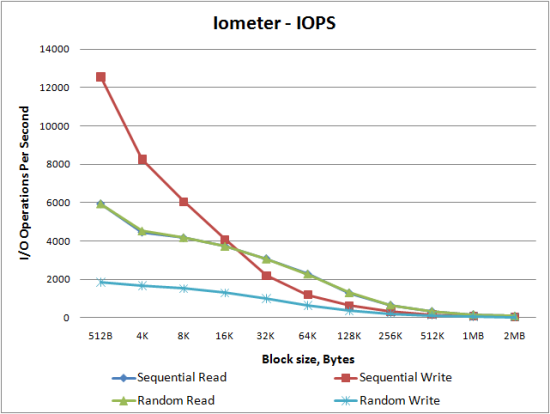
According to Plextor, the PX-128M1S can reach 4300 IOPS when reading and 1300 IOPS when writing 4K blocks. The drive had no problems exceeding these numbers in our tests, reaching 4524 IOPS when doing a random read and 1668 IOPS when doing a random write.
Garbage Collection:
While SSD's offer many benefits, there are some downsides to using flash memory. One of the biggest issues people run into is performance degradation. Over time, an SSD will run out of fresh blocks and will have to write over data the file system has marked as deleted. This procedure is very complicated and can slow an SSD's write speeds considerably.
To fix this problem, most manufacturers have added TRIM support to their SSDs. The TRIM command allows an operating system, such as Windows 7, to tell an SSD which data blocks are no longer in use. Using this information, the drive pro-actively erases these blocks and adds them to the free block pool.
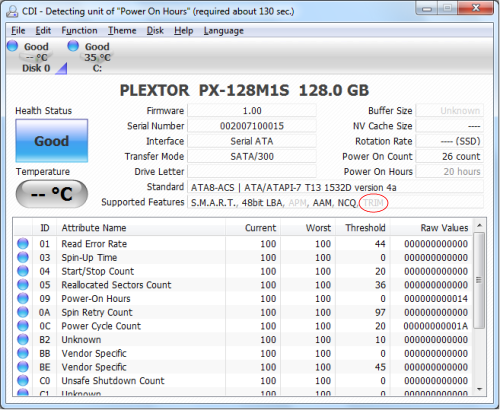
Despite the wide spread usage of TRIM, Plextor has opted to use its own garbage collection technique. While the company is a bit vague about how this feature works, they claim that it has been designed to prevent writing performance degradation and sustain a drive's writing speed. They even go as far to say that it their garbage collection technique helps to restore performance to the original condition and maintain the same level of performance.

Plextor PX-128M1S - Dirty
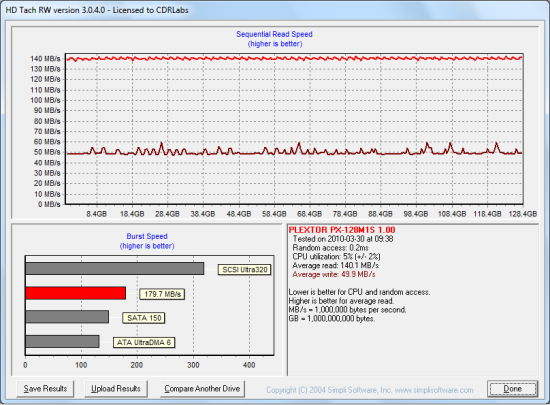
Plextor PX-128M1S - Garbage Collected
To see how well Plextor's garbage collection technique worked, I put the PX-128M1S in a dirty state and then let it sit idle for a few hours. I ran a few benchmarks using HD Tach and after seeing very little performance increase, I let it sit idle over the weekend. Looking at the screenshot above, you can see that while the PX-128M1S's performance was slightly better, it still has a long way to go to reach the factory fresh performance that Plextor advertises.
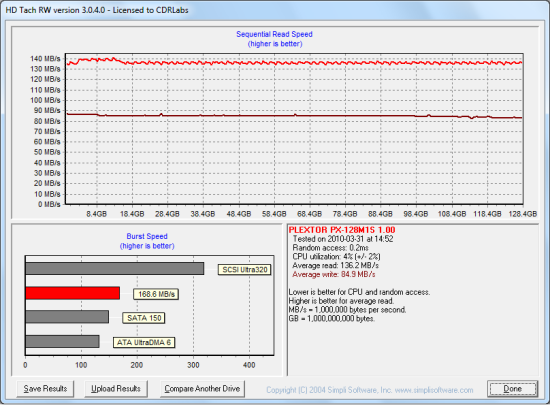
Plextor PX-128M1S - Post Preformat
The only way I was able to restore the PX-128M1S's performance was to wipe it completely using a utility provided by PLDS. Personally, I don't see this as a viable solution as you will have to backup your data, wipe the SSD and then copy it back.
Final Thoughts:
With the PX-128M1S, Plextor has made its long awaited entrance into the solid-state drive market. While not the fastest SSD available, the PX-128M1S performed as expected throughout most of our tests. Thanks to its Marvell controller and 64MB cache, it was able to read at 130 MB/s and write at speeds in excess of 80 MB/s when in a clean state. The SSD also features Plextor's wear leveling and garbage collection technologies and comes bundled with Acronis True Image. To top it all off, the PX-128M1S is covered by a three year warranty.
That being said, I do have a few issues with the PX-128M1S. First and foremost, is the lack of TRIM support. This feature is found on most new SSDs and, with Plextor's garbage collection technology doing little to offset performance degradation, it was sorely missed. Hopefully Plextor can add support for TRIM or improve their own garbage collection technology in a future firmware update. My other issue is price. Even after Plextor's recent price cuts, the PX-128M1S is still fairly expensive. For less than the $335 Plextor is asking, you can get a faster SSD with TRIM support from a company like Kingston or OCZ.
Highs:
- 128GB capacity
- Well constructed aluminum casing
- 64MB on-board cache
- Low power consumption
- Supports S.M.A.R.T., NCQ and wear leveling
- Includes Acronis True Image
- 3 year warranty
Lows:
- Does not support TRIM
- Garbage collection does not work as well as advertised
- Pricey
